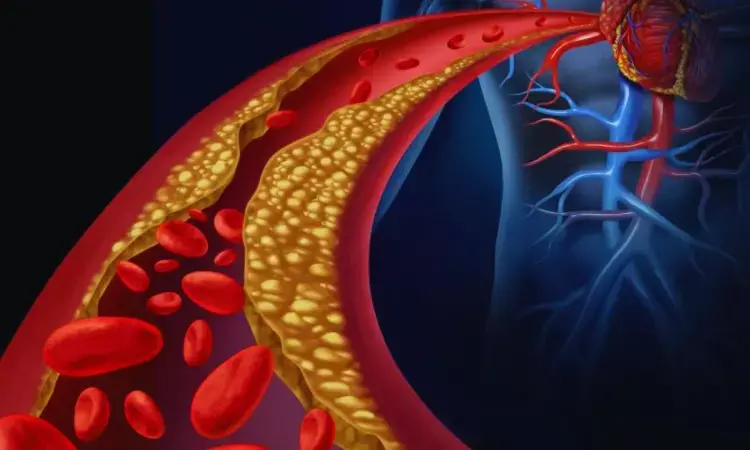- Home
- Medical news & Guidelines
- Anesthesiology
- Cardiology and CTVS
- Critical Care
- Dentistry
- Dermatology
- Diabetes and Endocrinology
- ENT
- Gastroenterology
- Medicine
- Nephrology
- Neurology
- Obstretics-Gynaecology
- Oncology
- Ophthalmology
- Orthopaedics
- Pediatrics-Neonatology
- Psychiatry
- Pulmonology
- Radiology
- Surgery
- Urology
- Laboratory Medicine
- Diet
- Nursing
- Paramedical
- Physiotherapy
- Health news
- Fact Check
- Bone Health Fact Check
- Brain Health Fact Check
- Cancer Related Fact Check
- Child Care Fact Check
- Dental and oral health fact check
- Diabetes and metabolic health fact check
- Diet and Nutrition Fact Check
- Eye and ENT Care Fact Check
- Fitness fact check
- Gut health fact check
- Heart health fact check
- Kidney health fact check
- Medical education fact check
- Men's health fact check
- Respiratory fact check
- Skin and hair care fact check
- Vaccine and Immunization fact check
- Women's health fact check
- AYUSH
- State News
- Andaman and Nicobar Islands
- Andhra Pradesh
- Arunachal Pradesh
- Assam
- Bihar
- Chandigarh
- Chattisgarh
- Dadra and Nagar Haveli
- Daman and Diu
- Delhi
- Goa
- Gujarat
- Haryana
- Himachal Pradesh
- Jammu & Kashmir
- Jharkhand
- Karnataka
- Kerala
- Ladakh
- Lakshadweep
- Madhya Pradesh
- Maharashtra
- Manipur
- Meghalaya
- Mizoram
- Nagaland
- Odisha
- Puducherry
- Punjab
- Rajasthan
- Sikkim
- Tamil Nadu
- Telangana
- Tripura
- Uttar Pradesh
- Uttrakhand
- West Bengal
- Medical Education
- Industry
Streptococci bacteria in gut microbiome tied to coronary atherosclerosis: Circulation

Sweden: Researchers have discovered an association between gut microbiota composition characterized by an increased abundance of Streptococcus spp and other species commonly found in the oral cavity and coronary atherosclerosis and markers of systemic inflammation.
Although about 2,000 species were identified in stool samples from middle-aged adults without known cardiovascular disease (CVD), the strongest links were seen for Streptococcus oralis subsp oralis and Streptococcus anginosus. The study findings were published in the journal Circulation on 12 Jul 2023.
Gut microbiota have been implicated in atherosclerotic disease, but there is no clarity on their relation with subclinical coronary atherosclerosis. Therefore, Sergi Sayols-Baixeras, Uppsala University, Sweden, and colleagues aimed to identify associations between the gut microbiome and CT (computed tomography)-based measures of coronary atherosclerosis and to explore relevant clinical correlates.
For this purpose, a cross-sectional study was conducted of 8973 participants without overt atherosclerotic disease from the population-based SCAPIS (Swedish Cardiopulmonary Bioimage Study). Coronary computed tomography angiography and coronary artery calcium score were used to measure coronary atherosclerosis.
The abundance of gut microbiota species and functional potential were evaluated with shotgun metagenomics sequencing of stool, and associations with coronary atherosclerosis were determined with multivariable regression models adjusted for cardiovascular (CV) risk factors. Associated species were evaluated for association with metabolites, inflammatory markers, and corresponding species in saliva. The mean age of the study sample was 57.4 years, and 53.7% were female.
- Coronary artery calcification was detected in 40.3%, and 5.4% had at least 1 stenosis with >50% occlusion.
- Sixty-four species were associated with coronary artery calcium scores independent of cardiovascular risk factors, with the strongest associations observed for Streptococcus anginosus and Streptococcusoralis subsp oralis (P<1×10–5).
- Associations were largely similar across coronary computed tomography angiography–based measurements.
- Of the 64 species, 19 species, including streptococci and other species commonly found in the oral cavity, were associated with high-sensitivity C-reactive protein plasma concentrations and 16 with neutrophil counts.
- Gut microbial species that are commonly found in the oral cavity were negatively associated with plasma indole propionate and positively associated with plasma secondary bile acids and imidazole propionate.
- Five species, including 3 streptococci, correlated with the same species in saliva and were associated with worse dental health in the Malmö Offspring Dental Study. Microbial functional potential of dissimilatory nitrate reduction, anaerobic fatty acid β-oxidation, and amino acid degradation were associated with coronary artery calcium score.
"Further experimental and longitudinal studies are warranted to explore the potential implications of a bacterial component in atherogenesis," the researchers concluded.
Reference:
Sayols-Baixeras S, Dekkers KF, Baldanzi G, et al. Streptococcus species abundance in the gut is linked to subclinical coronary atherosclerosis in 8973 participants from the SCAPIS cohort. Circulation. 2023;Epub ahead of print.
Dr Kamal Kant Kohli-MBBS, DTCD- a chest specialist with more than 30 years of practice and a flair for writing clinical articles, Dr Kamal Kant Kohli joined Medical Dialogues as a Chief Editor of Medical News. Besides writing articles, as an editor, he proofreads and verifies all the medical content published on Medical Dialogues including those coming from journals, studies,medical conferences,guidelines etc. Email: drkohli@medicaldialogues.in. Contact no. 011-43720751


